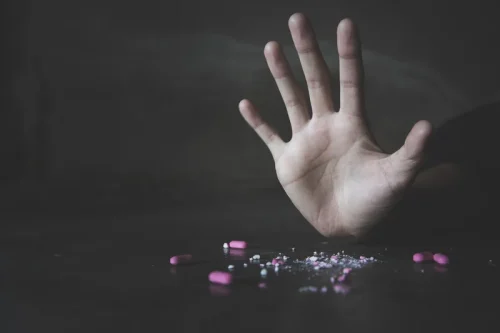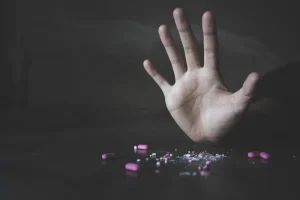
The emotional and psychological toll of MDMA addiction can also be significant, with users often experiencing persistent depression, anxiety, and difficulty regulating their moods and emotions. Users may be led to believe it is pure MDMA, but it can contain a variety of other drugs such as ketamine or cocaine, and even toxic substances. In some cases, what is thought to be molly may not contain any MDMA at all. Those who use MDMA can also have nausea, sweats, or muscle cramps and can clench their teeth. Some people experience other negative effects for up to a week after taking MDMA; these include anxiety, irritability, sleep issues, and lower pleasure from and desire for sex. Some research indicates that MDMA can damage brain cells, memory, and the ability to learn and feel pleasure.

Conditions

It is recommended to seek medical supervised detox when coming off of ecstasy. Pure MDMA is not considered as addictive as other illicit drugs such as cocaine, but some people can develop a dependence on the drug and have withdrawal symptoms when they stop using it. Withdrawal symptoms include fatigue, depression, impaired concentration, and loss of appetite.

Recognizing an Ecstasy Addiction
As with many other molly mdma “party drugs”, ecstasy is rarely used alone and it is frequently combined with alcohol and marijuana. Researchers’ understanding of MDMA toxicity has evolved over time. While the drug was initially thought to cause immediate dependence and pose a high risk to public health, current studies no longer indicate for sure that MDMA can cause addiction.
- It’s similar to other stimulant drugs, such as methamphetamine.
- Individuals who use MDMA risk ingesting unknown substances, which are often found in illicitly purchased ecstasy pills, capsules, tablets, and powders.
- There are differences between tolerance, dependence, and addiction to a drug.
- AddictionResource aims to present the most accurate, trustworthy, and up-to-date medical content to our readers.
Learn more About Drug Misuse and Addiction
- Many of the other dangers can occur from even a single use of the substance.
- The nickname “Molly” is short for “molecular.” It often refers to the drug’s powder form, which some people sell as capsules.
- Quitting ecstasy without medical involvement is unlikely to cause any major health problems, but a medical detox may help alleviate some of the withdrawal symptoms.
- While there are no specific treatments for ecstasy addiction, the National Institute on Drug Abuse suggests that cognitive behavioral therapy (CBT) is the most effective option.
Almost 60% of people who use Ecstasy report some withdrawal symptoms, including fatigue, loss of appetite, depressed feelings, and trouble concentrating. MDMA is classified as a Schedule I Controlled Substance, meaning it has a high potential for abuse and no currently accepted medical use. If you or someone you care about has a problem with ecstasy, get in touch with a treatment provider for help. There are various levels of care ecstasy users can enter for treatment depending on your needs. Inpatient treatment is methodology that helps separate people form their daily use disorder triggers and get them used to living life without a chemical dependency.
Health Challenges
- People may try to lessen these effects by taking time to cool off and drink fluids — ideally juice or drinks with electrolytes.
- The risk of severe health complications, such as hyperthermia, cardiovascular issues, and even death, increases with overdosing or consuming impure substances.
- However, that does not mean that an ecstasy addiction that has developed is not a serious problem.
- However, the latest research also suggests that MDMA can be highly effective as part of a treatment plan for depression, anxiety, PTSD, and other severe mental health conditions.
MDMA use can trigger depression, anxiety, and — in rare cases — psychosis. Experts have called for more studies on MDMA’s lasting effects on the brain. Another significant danger is the fact that people taking ecstasy don’t know what they are actually ingesting. In one study, researchers found that only 60% of samples contained any MDMA at all and many were mixed with so-called “fake cocaine,” a substance typically made with synthetic cathinone. In nearly 25% of the samples, the researchers were unable to identify what was actually in the tablets. There’s no set definition for “hard drugs.” Generally, hard drugs are considered to be those with the greatest potential for harm and addiction, such as heroin and cocaine.
- This means the Drug Enforcement Administration (DEA) considers it as having no medical use and high potential for misuse.
- The stimulating effects of a single dose tend to peak at 1 1/2 to two hours and go away within four hours, but aftereffects may last for a few days or longer.
- We strive to create content that is clear, concise, and easy to understand.
- In addition, fentanyl has been increasingly found cut into other street drugs, often unknown by the user and leading to fatalities.
There are currently no FDA-approved medications to treat ecstasy addiction. Twelve-step recovery programs and support groups may be helpful, particularly when used in conjunction with cognitive behavioral interventions. MDMA, also known as ecstasy or “molly,” is a synthetic drug known primarily for its hallucinogenic and stimulant effects.
Ecstasy Withdrawal Timeline and Factors Affecting Withdrawal

An ecstasy overdose is a serious issue that can lead to significant health problems. The signs of ecstasy overdose may be somewhat vague or non-specific, which can make it difficult to identify when someone has overdosed on MDMA. If you think your loved one might have taken too much MDMA, be proactive and get help immediately by seeking medical attention or calling 911 for emergency help. If you think you or someone you are close to are experiencing ecstasy overdose symptoms, it is important to get them medical help immediately.




Leave a Comment